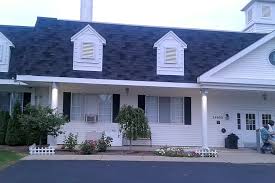With growing environmental concerns, sustainability has become a crucial aspect of residential living. Energy-efficient appliances, eco-friendly assisted living in Farmington Hills Michigan construction materials, and the integration of renewable energy sources like solar power are increasingly common in modern residences. Additionally, initiatives such as recycling programs, community gardens, and sustainable water management systems contribute to environmentally conscious living.
Technological Integration:
Advancements in technology have revolutionized residential living, introducing smart home systems that enhance convenience, security, and energy efficiency. Home automation, Internet of Things (IoT) devices, and integrated systems allow residents to control various aspects of their homes remotely, optimizing comfort and safety.
Challenges and Future Trends:
Despite the numerous benefits of residential living, challenges persist. Housing affordability, equitable access to adequate housing, and urban sprawl are pressing concerns in many regions worldwide. Addressing these issues requires innovative urban planning, policy initiatives, and collaborative efforts between public and private sectors to ensure inclusive and sustainable residential development.
Looking ahead, future trends in residential living are poised to prioritize adaptable and multifunctional spaces. With remote work becoming more prevalent, home offices and flexible living areas will likely gain importance. Additionally, an increased focus on wellness-centric design, resilient infrastructure, and sustainable practices will shape the future of residential development.

